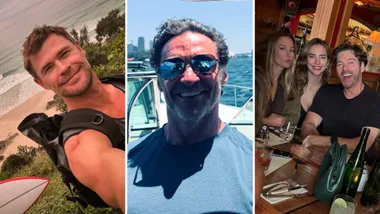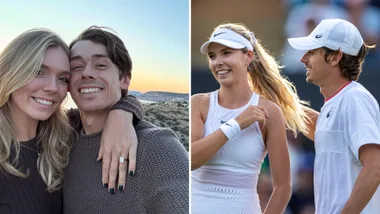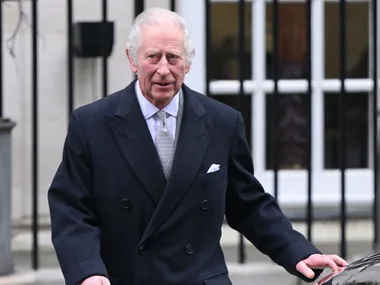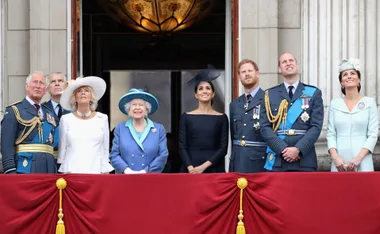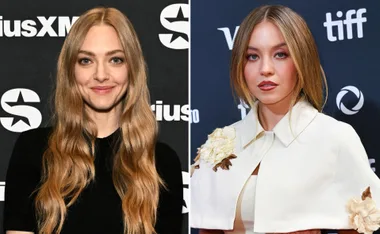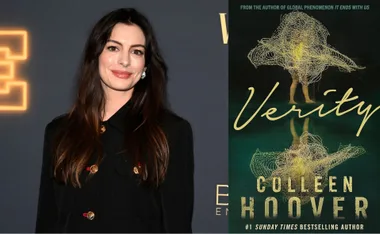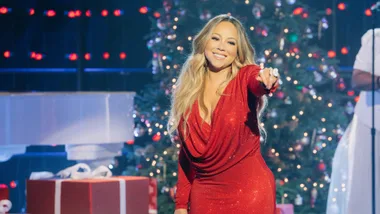Lee Smith is the author of The Last Girls, selected as the Great Read in the January issue of The Australian Women’s Weekly. The story centres on a group of old college friends who, in 1965, inspired by Huckleberry Finn, sailed a homemade raft down the Mississippi River. Thirty-four years later, they reunite to sail the river again. The Last Girls is about friendships, romance, memory and desire.
**Q I was amazed to read that the raft trip down the Mississippi is based on fact.
A** Yes, (laughing), I’m amazed now that we did it. My husband and I went down the Mississippi again, a few years ago, when I was doing research for this novel. We went on a steam boat and standing there, looking out at the size of the river, I could hardly believe that we did it. It just seems amazing to me. When you’re young, you don’t realise the dangers.
**Q You’re also more adventurous when you’re young?
A** Absolutely! It’s a great advantage (laughing). I think, too, when you’re young, you’re so much more open to everything. I think in a way this book is about friendships between women. The friendships we make when we’re young, nothing makes such an impression. We feel so much and experience so much – the friends you have at that time in your life are the ones that make a really indelible impression. Like the first man in your life.
The first trip was very much like the trip as it is described in the novel. I was at an American literature seminar at a women’s college. The characters are made up, but we were a lively bunch.
**Q How many of you were there?
A** Fifteen of us were on the trip. We built a raft which essentially looked like a floating porch. There was like a lumber floor and oil drums. It was 40ft long, 15ft wide and it had a railing around it and a structure over it, so we could cover it with tarpaulins. And we had a 240 horsepower motor. We also had two boys with us. Our parents were not about to let us on the river without some guys, so we had a couple of cousins, and a retired river-boat captain. The authorities were not going to let us on the river, so we cried on television and this old river-boat captain emerged from this retirement home. He’d been on the river for 50 years. So he had a story about everything and a lot of that I had to leave out because I was writing a different book. He was terrific.
**Q And the trip was just some crazy idea you came up with?
A** It was exactly like that. There were one or two young women among the group, who were the kind of people who get things done – pursue things. I was not one.(laughing)
**Q And the trip really was inspired by Huckleberry Finn?
A** It was and it truly was a raft of mainly English majors. At that time we were reading – it was the vogue in America then – Joseph Campbell’s The Hero With a Thousand Faces and looking at literature in terms of myth, and heroic journeys and so on. Later when I began to think about writing this book I realised that that model of the heroic journey, the quest to conquer, was so much a boy’s book – so much a male journey. And really, if we think of the river journey as a metaphor for life, for women that very organised goal-oriented journey has not been the case. For any woman I know, it’s really been more about the journey than the destination.
We were reading Huckleberry Finn when we decided to do the trip. Actually the content of that wonderful novel doesn’t have so much to do with my novel, except maybe in the theme of the loss of innocence.
**Q How many days were you on the river?
A** Sixteen days. Because we wrecked! We were hit by the tail of a hurricane and were flung into the levee and had to buy a new motor and get the rail repaired. Then we had some terrible weather. By the time we got to New Orleans, everything we had was wet. And we were filthy.
**Q And lucky to be alive?
A** Well, it wasn’t that bad, but it was a real adventure. I think we thought it was going to be this idyllic floating along. And it was a lot of work! It was wonderful, but I guess every trip is different to what you think.
**Q Your parents must have been relieved to know you arrived safely?
A** I think they were. We were getting lots of press coverage by the time we came to New Orleans, because it became a bit of a cause celebre. They were following us in the press as we went. And we were really met by a tug boat with a jazz band playing and given the keys to the city.
**Q So you were minor celebs?
A** For a day or so. We got free hotel rooms. It was tremendously exciting and very empowering to attempt something hard and achieve it.
The return trip my husband and I did was on a steamboat and although based on a real event in my life, the characters in the book are all fictional, because that’s what I do. That’s the kind of thing I know how to write.
**Q I read that around the time you did the trip, you kind of broke out and that there was a go-go dancer with a rock band?
A** (Laughing) Well, that was also kind of a lark. I was in an all-woman band and it had a funny name because the college is in Virginia and the band was the Virginia Wolves.
**Q I’ve read that you think Virginia Woolf’s book, To The Lighthouse, is the perfect novel?
A** Yes, I think so, for me. However, I have to add that I just read Ian McEwan’s Atonement, and it’s really good, But I love Virginia Woolf, she’s someone who I have spent a lot of time reading.
**Q I assume that the reunion in the book is fictional?
A** Yes. Over the years, people would say, “when are you going to write about the raft trip?” For a fiction writer, no matter how interesting events are, that’s not a story. For a story you’ve got to have meaning and relevance about how those events affected the characters. So it’s taken, really, 30 or 35 years to begin to understand how the story has a real resonance and relevance for me, now.
**Q Have some of the girls who went on the trip with you read the book, and did they like it?
A** Oh yes! I’m really good friends with several of them. One’s a professor of literature, another is a journalist in Washington. Three or four of them have read it and everybody liked it so much. I’m so pleased.
**Q I was fascinated by the character “Baby”. On the one hand, she was endlessly fascinating and attractive, on the other, she was destructive. Yet ultimately, according to her husband, she had finished up living a worthwhile life.
A** Baby is a catalyst. I feel like most of us have run into somebody like that and when you’re young and things make such an impression, they can really get you into a lot of trouble. You know, people who are themselves troubled can be so charismatic. I made Baby a kind of a genius as well as a completely free spirit. The impact on Harriet was tragic, because she put her life on hold in reaction to what happened.
**Q I thought the adventures of this group of women also mirrored the times – the 1960s when young women were experiencing a lot of change?
A** Oh absolutely and this is why I named it The Last Girls. When people say the ’60s, the images that come into our minds are free spirits and summer of love and hippies. And San Francisco and psychedelic drugs. In reality in the US, the ’60s were all those things that we think, but they didn’t really happen in the ’60s, except if you happened to be living in San Francisco. Or you were at Harvard or somewhere like that. For most Americans, who were at rural schools, it was not like that. It’s true the ’60s were poised to happen, in 1966. Everything was really changing, certainly for women and the women who were going to graduate were going out into a world vastly different from the world that their parents expected for them. Or that they had expected for themselves. It was a world with incredibly more possibilities, for them and their lives. But also a world of greater ambiguity and the loss of certainties like the ’50s family and the myth of romance, that they were going to marry someone and they would be with them forever.
**Q They were also difficult times for women who were torn between two very different worlds?
A** Absolutely, and I think, just like in the novel, when I look through my clippings from newspapers from that time, stuff like Girls A Go-Go Down The Mississippi, nowadays no-one would ever call a group of young women on a raft “girls” – it really would be defeating.
**Q I’ve read that from an early age you loved stories, telling them and hearing about them and that you earned pocket money, writing stories for neighbours?
A** (laughing) That’s right, I grew up in a family not so much of readers or writers or scholars, but of story-tellers, so I was very lucky to have grown up hearing so many wonderful stories.
**Q Is it true you used to hide up in the ceiling of your father’s shop and listen in to everything?
A** Yes, (laughing) absolutely. I had an endless fascination and then I did spend some years as a journalist and that gives you carte blanche to ask personal questions of people. That’s another way to learn about character, I guess.
**Q What years did you work for a newspaper?
A** I worked there until I had children. About 1968-73. I worked on the Richmond Newspaper and then on the newspaper in a town in Alabama and there were a lot of characters. I worked in features and then I ran a Sunday supplement and I was also trying to write fiction all that time as well. I did have the novels coming out, too, when I was young.
**Q I read your parents both suffered from depression and that in a way, your writing was therapy for you?
A** It was, although I don’t think I’d ever heard the word therapy at that point, but it was another world to be in for a little while and I think reading and writing are legitimately used as an escape for all of us at any time. But my parents, while they did have these troubles, were enormously supportive of my interests and of each other. They were very sweet. They just seemed to have a bit of trouble navigating the world.
**Q Do you have sisters and brothers?
A** No, my parents were older when I was born. They thought they would never have children.
**Q You were the miracle child?
A** Yes and I think that was one reason they didn’t know quite what to do with me because I was an avid reader, I was different!
**Q You’ve described yourself as a “deeply weird child?”
A** (Laughing) I think that’s true. Books and reading and writing. No-one in my family was at all like that. They were all in business, they were gamblers, poker players, into politics – they were kind of hard livers and big drinkers and the women were very traditional home-makers. So I was an odd little thing.
**Q Like someone who’d come from Mars?
A** Yes, that’s right! But they were all delighted with me. I was just a strange sort of kid.
**Q You grew up in Appalachian mountains? What was it like?
A** The mountains there are really big, really straight up and down and when I was growing up, the roads were bad, so we were very much isolated. The Appalachian Mountains were one of the few places in the country that was really cut off from the mainstream for a long time because of the geography and so we did have our own very strong folk culture, which I’ve written about a lot. We enjoyed country music – blue grass. I grew up with that and that kind of story-telling – everything was expressed out loud – and with lots of music and folklore and customs. The main income where I come from was coal mining. It was very poor and very hard. I think when other people think about the South, they have a Gone With the Wind image and my background was nothing like that.
**Q You were one of the first writers to depict poor Southern women?
A** That’s right. I had the privilege to grow up with so many women, particularly of my parents’ generation who had worked so hard and had led what I considered to be heroic lives and I hadn’t seen these lives written about very much. So I wanted to honour them.
**Q In what way are women from the south different to women in the North?
A** Now there’s not much difference frankly, because television is a great leveller and we’re all sort of in the same culture, but for a long time the South was so much poorer and so much more remote. The civil war is what made the difference because it was the only part of this country that was occupied, defeated. There was a certain real difference. For a long while, it was a lot more backward educationally and there was more racial prejudice. It was less industrial, much more rural, fewer cities and now I think the South has economically, culturally and in every other way, caught up with everybody. Traditionally, the Southern woman was at home. Or she was on the farm. Or up in the mountains She was not as such a visible force, not as educated. But there have also always been really good Southern Writers. The south as a whole, has provided so much to write about. It is a particular culture with particular problems. And incredible conflict. And fiction requires conflict. In fact, I think a lot of our country’s greatest writers have come from the South because there’s so much tragedy and torment and big stuff to write about (laughing). It’s colourful!
**Q William Faulkner is one of your big influences?
A** Yes and in the same way as Virginia Woolf – his experimentation with narratives and ways of telling the story.
**Q How old are you?
A** I turned 58 on November 1.
**Q You still write your books in long-hand?
A** Yes (laughing). But I’m so glad I’ve gotten email, because I’ve been able to email back and forth with the publicist in Australia to organise our interview. I just got a computer.
I don’t know why! To me, writing is – because I have a story-telling tradition – very visceral. I hear the words in my head and I just sort of go into a kind of trance and write it out. I do have a wonderful secretary who at some point will put it onto a disc.
**Q You have two sons?
A** They are 32 and 30 and the one who is 30, has just had a child so I’ve just had my first grandchild. And I felt like it was really appropriate that she was born just as this book was coming out because it’s all about passages and changes in a woman’s life and I certainly have had this huge emotional reaction to having this adorable baby in our family. I mean, it’s just beyond anything. They named her Lucy and she was born on October 8.
And I have a wonderful step-daughter who is a psychologist, Amity. My husband’s name is Hal Crowther, he’s a journalist I married him in 1985 and he, too, has recently written a book. It’s called Cathedrals of Kuzu – and that’s the kind of vine that grows over everything in the South. It’s his journalist’s take on the whole thing.
**Q You have two dogs and two cats?
A** We have two dogs, one called Hilly after Hillary Clinton and Gracie. Sadly, we don’t have our cats any more.
**Q If I said, “Lee Smith loves…”, how would you finish the sentence?
A** My family, to read and write and just be as passionately connected with the real world as I can. I’m very interested in politics and gardening and cooking and I walk three miles every day. I’m not the kind of writer who’s apart from the world. And I am very involved in things like literacy efforts, and very partisan to the Appalachian region where I’m from and I spend time going back up into the mountains and teaching writing classes. I think that’s real important.
**Q Lee Smith believes very strongly in …?
A** Education and women’s rights – politically I’m a liberal – I believe in individual rights and freedoms. I’m what they call in the South (laughing) a yellow dog Democrat. That means I’d vote for a yellow dog before I would vote for a Republican. I’m not a George Bush fan.
Thank you Lee, for all your time and help.
Well, thank you, I’m going to look at your website and I’m just so completely thrilled that the book has made this kind of journey to a whole other country and a whole other culture. It means so much to me, it really does.
Newsletter conversion description. Get the latest in your inbox.














